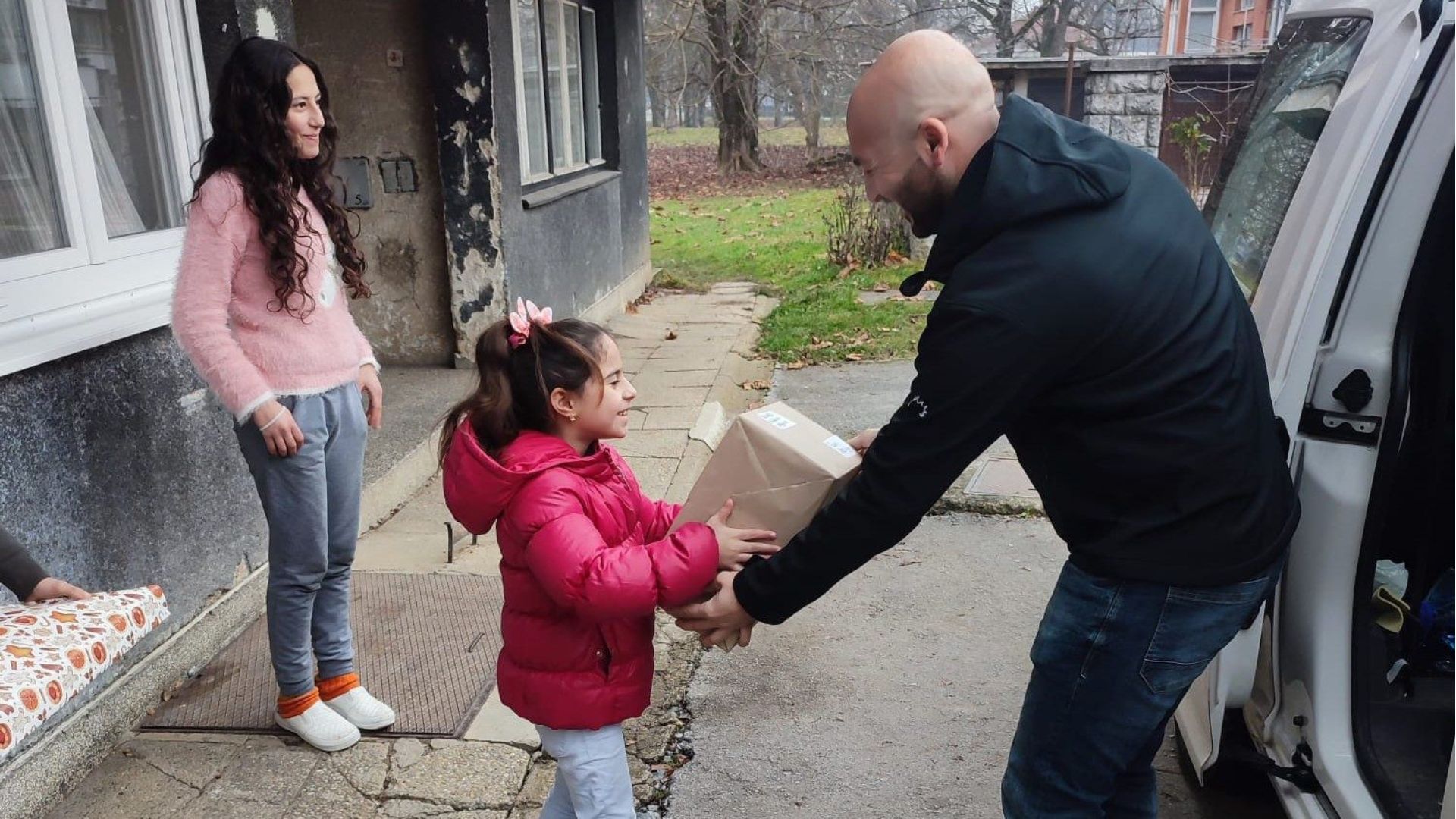Vatican City - On the 109th World Day of Migrants and Refugees, a collective call for compassion and collaboration resounds. Pope Francis urged nations to respect the dignity of migrants and expand safe migration channels. Caritas Italy advocates for humanitarian corridors and the end of labor exploitation, while Tony Toumeh's journey underscores the resilience and hope of those seeking safety and opportunity.
Pope Francis' Message for the 2023 World Day of Migrants and Refugees
The 109th World Day of Migrants and Refugees, observed on September 24, 2023, is centered on the theme "Free to choose whether to migrate or to stay." In his message, Pope Francis calls for collective efforts by individual countries and the international community to ensure that everyone has the right to live in peace and dignity in their own country and should not be compelled to emigrate.
The Pope underscores the importance of maximum respect for the dignity of each migrant and advocates for the expansion of safe and regular migration channels. He urges nations to work together to ensure equal access to the common good, uphold fundamental rights, and promote comprehensive human development for all.
Caritas Italy's Advocacy for Humanitarian Corridors and Labor Rights
As tens of thousands of refugees reach the shores of southern Italy, Caritas Italy is reaching out, not only hosting and accommodating migrants and refugees but also advocating at European institutions.
“It's very hard to say what is the solution for this big challenge of migration. But we can say that the first step of a possible solution is to open more legal pathways,” said Mr. Forti, emphasizing the importance of providing opportunities for economic migrants and refugees to reach safe countries.
Countries along the migration routes can contribute to solving this problem, but only if they work together, explains Mr. Forti.
“We have the possibilities; we have the resources to give a chance to all these people. The problem is that European countries don't want to collaborate. Europe is not clear about migration,” he said.
One of the major problems associated with migration is when migrants are exploited by employers. “Labour exploitation in Italy, even in many other countries around Europe, is a really huge problem," said Mr. Forti. "The lack of integration of migrants in our countries does not permit these people to be well integrated in the labor market."
He underlined the need to find effective ways to offer good opportunities, even in the labor market, since migrants arrive in Europe first and foremost because they have not had the opportunity to work in their own countries.
“It's incredible to see that sometimes they are exploited two times: in their country of origin, sometimes in the transit country, and finally even in the destination country,” said Mr. Forti.
Caritas Italy is continuing a project called Presidio, founded in 2015, which aims to improve the living conditions of migrants in Italy.
Caritas, in collaboration with other organizations, provides legal, medical, and social assistance to thousands of migrants living in different parts of the country. Thanks to this project, they are able to find employment and protect their rights as workers.
Tony Toumeh's Journey: From Syria to Croatia
Tony Toumeh, a young Syrian, left his country at the beginning of the war in 2011, first emigrating to neighboring Lebanon.
“Youth groups were needed for the war," says Tony, "I would like to clarify something: it is not the state of war that pushed me to leave my country, but the war was a civil war, where we fight among ourselves as one people.”

Tony working with families of migrants and refugees
From Lebanon, he headed for Western Europe and Austria, carrying only his hope. His month-long journey took him along dangerous paths, sleeping in forests, trains, and buses.
He crossed into Turkey and then made his way to Greece on a small, overcrowded boat, which was the most dangerous part of the journey. From Greece, he walked through Macedonia and Serbia.
From Serbia, he reached Hungary. “Hungary had a closed border so we slept in the forest and we were waiting for them to open the border,” says Tony. He crossed Croatia and from there he walked to Austria. Packing only hope
Tony traveled without the very basic necessities for living. He was hungry and tired, and says that only hope kept him alive, "the hope of a safe life, not just for me, but for my family, my parents, my brothers and sisters. They couldn't live in Syria without outside help, because the situation there is very, very bad," he explains.
He waited for six months in Austria to obtain the required documents and in September 2016 was ultimately deported to Croatia where he met good people who helped him, so he decided to settle there.
Today, he is a Croatian citizen. For the past three years, he has been working at the Jesuit Refugee Service (JRS) in Zagreb, where he married a colleague. He is now dedicated to helping people on the move who are crossing Croatia. His work consists of helping people whose situation he has recently experienced. "I can give the help I received before," says Tony.
Tony says he has experienced a fear of migrants during his time in Europe. "There are people everywhere who accept you and others who don't, in every country. I'd like to say thank you to both, I respect everyone's opinion. At the end of the day, we're all human and I hope we treat each other with humanity."